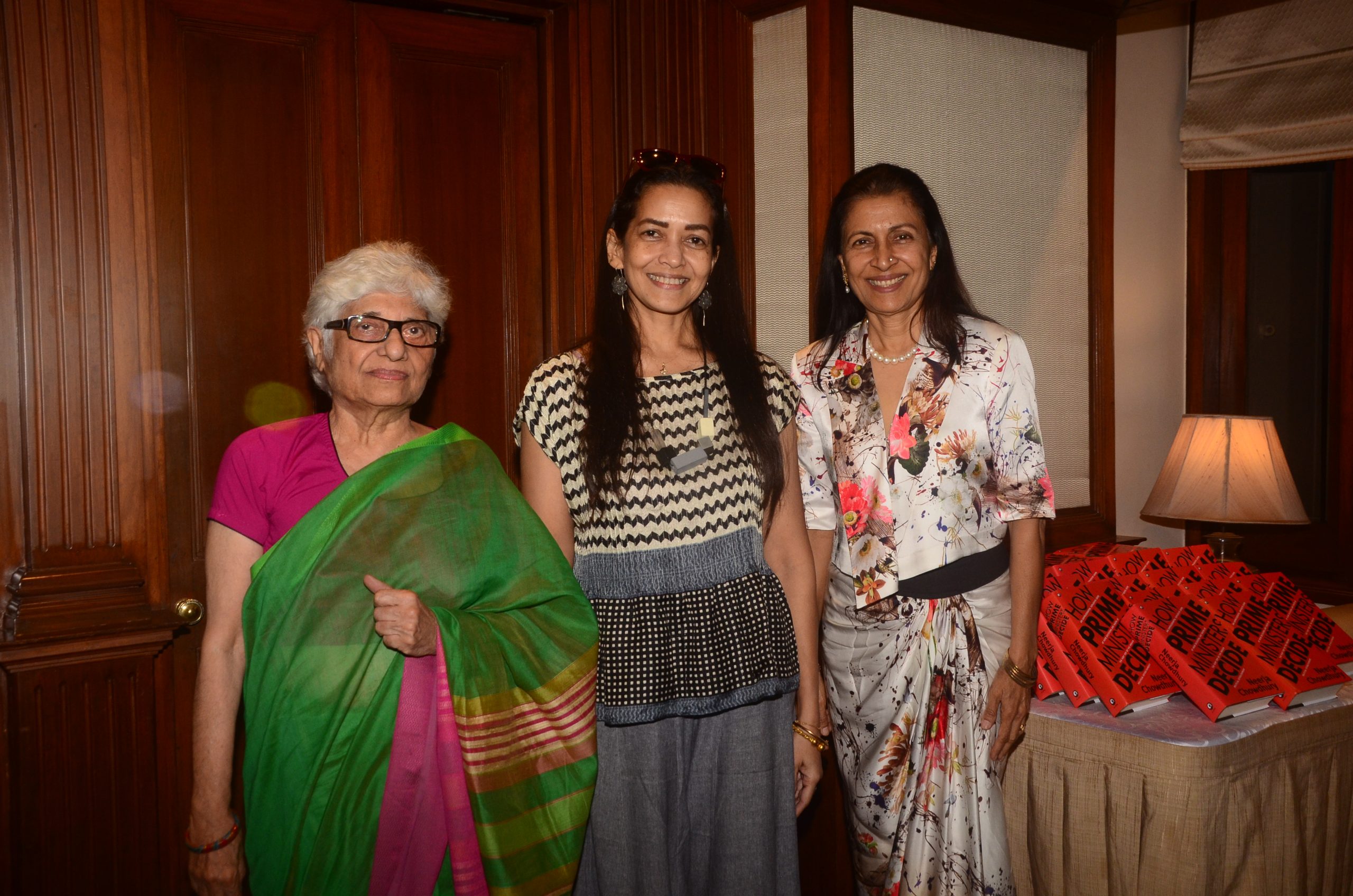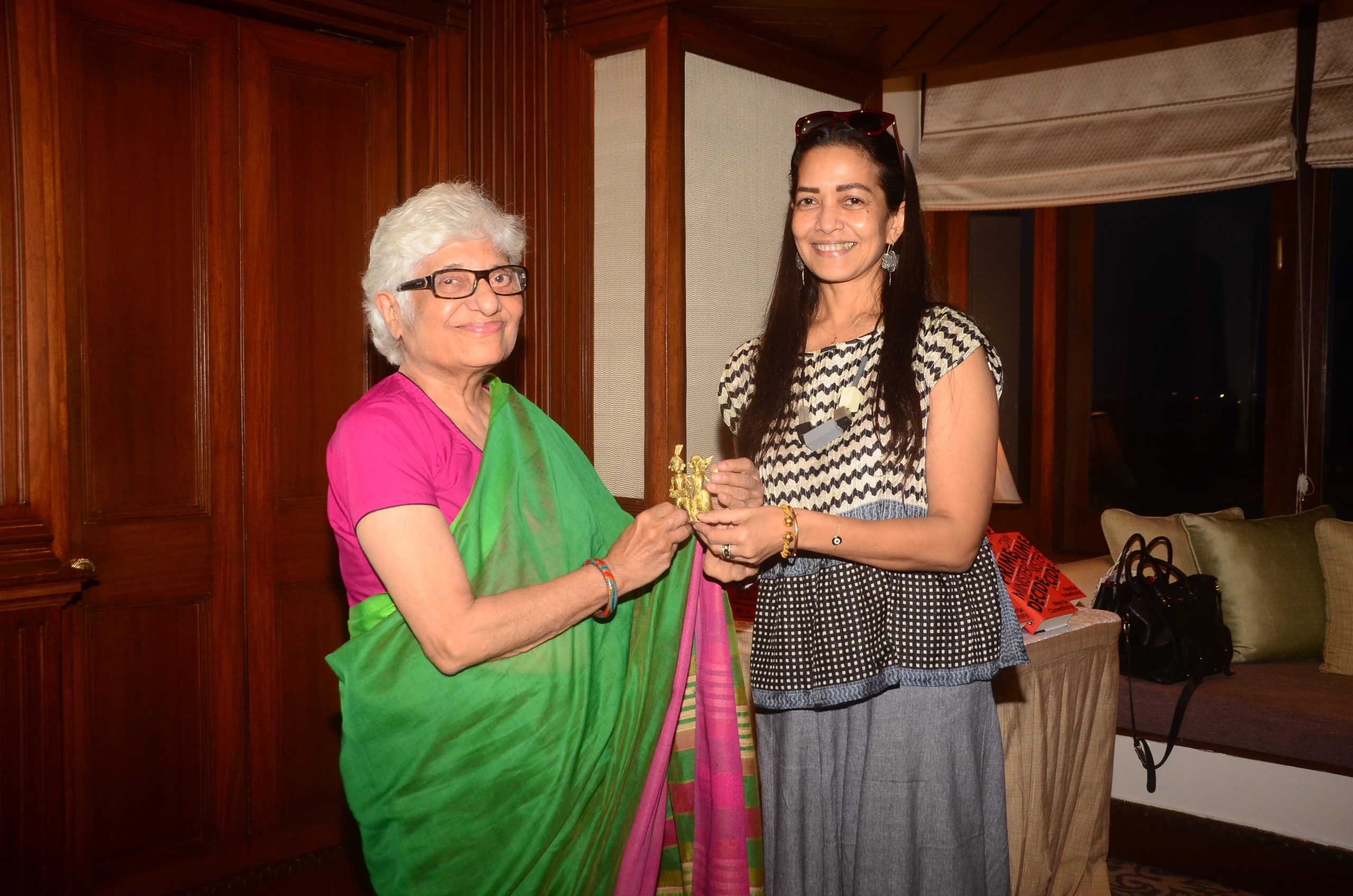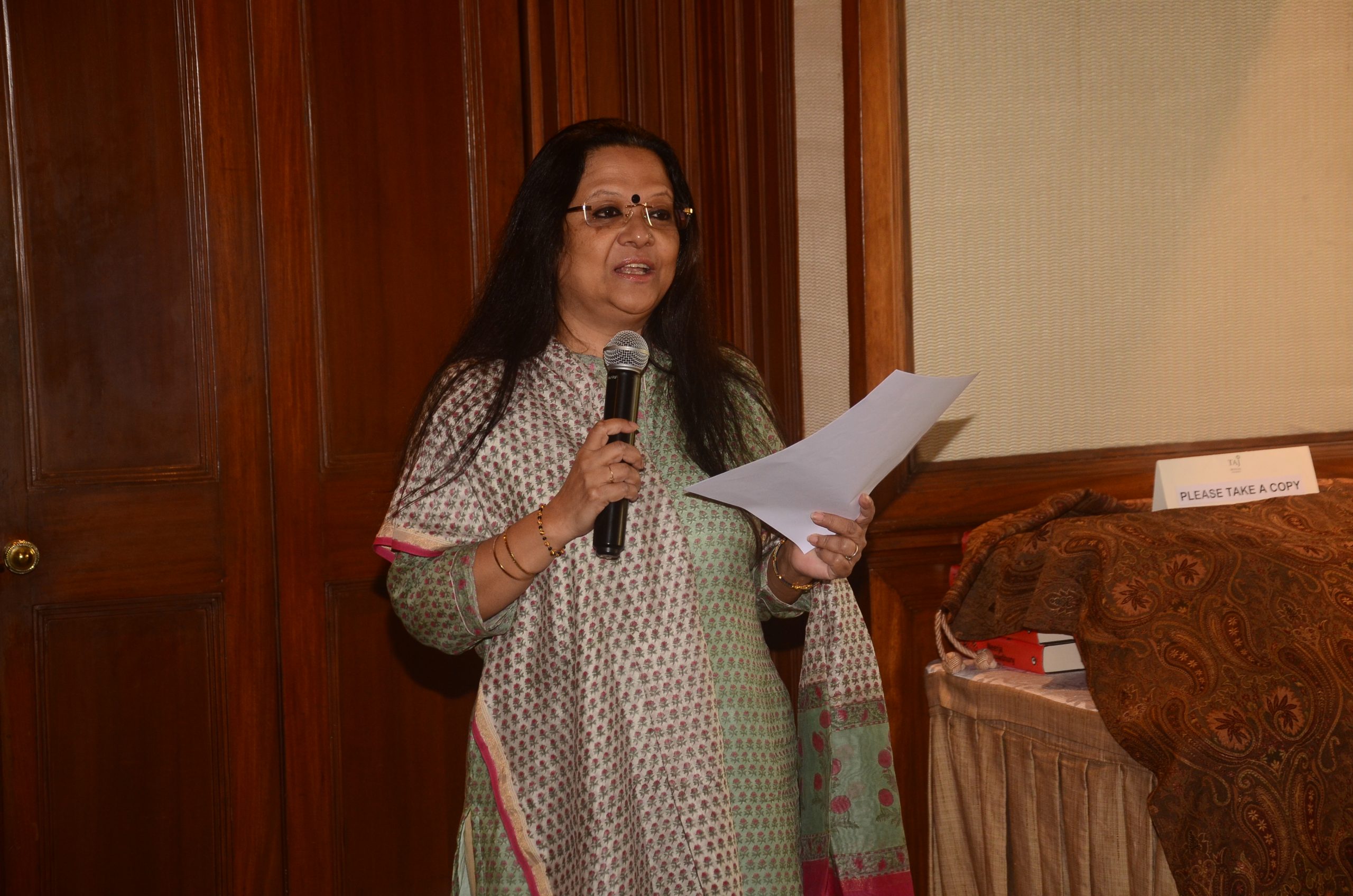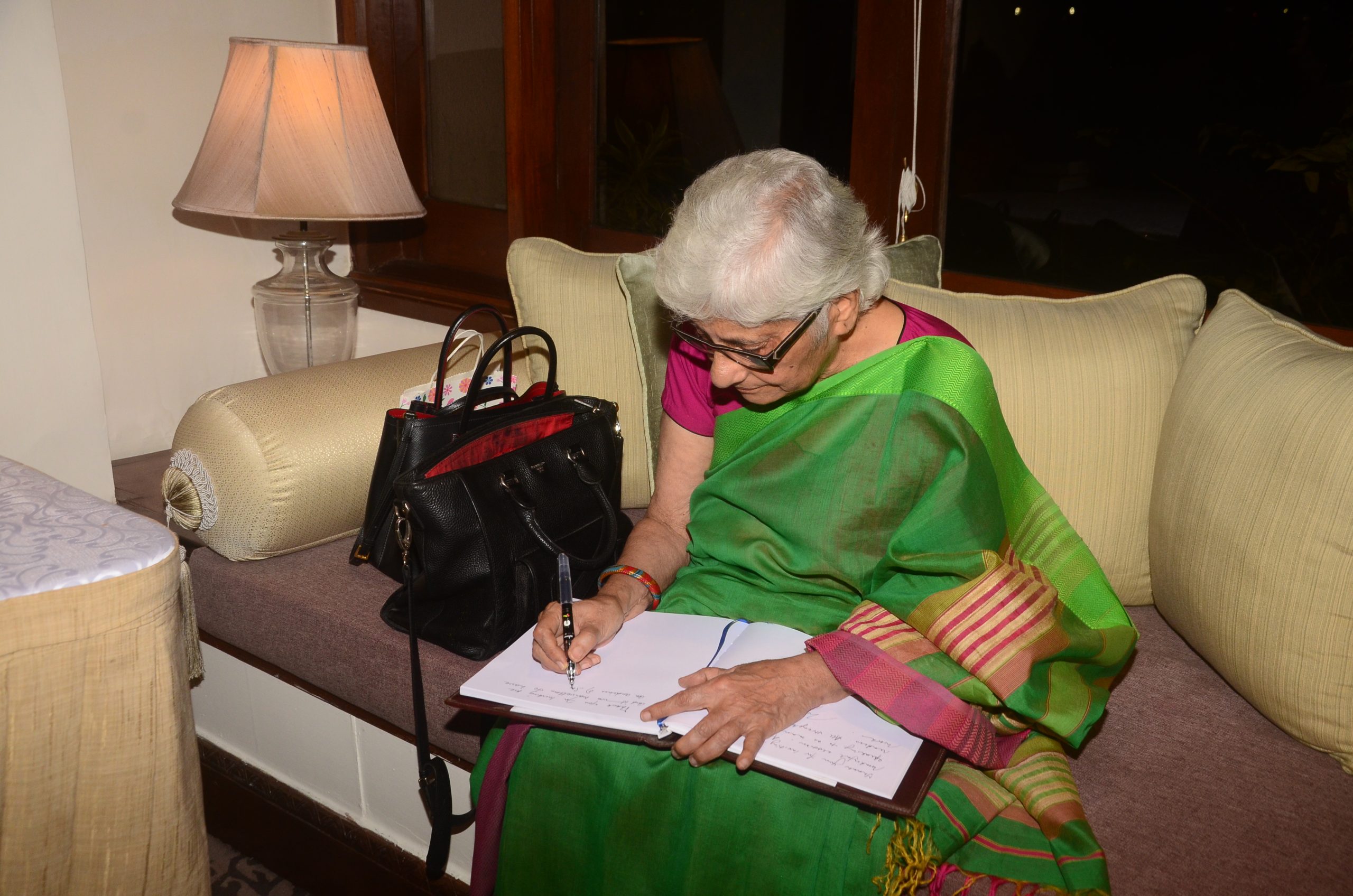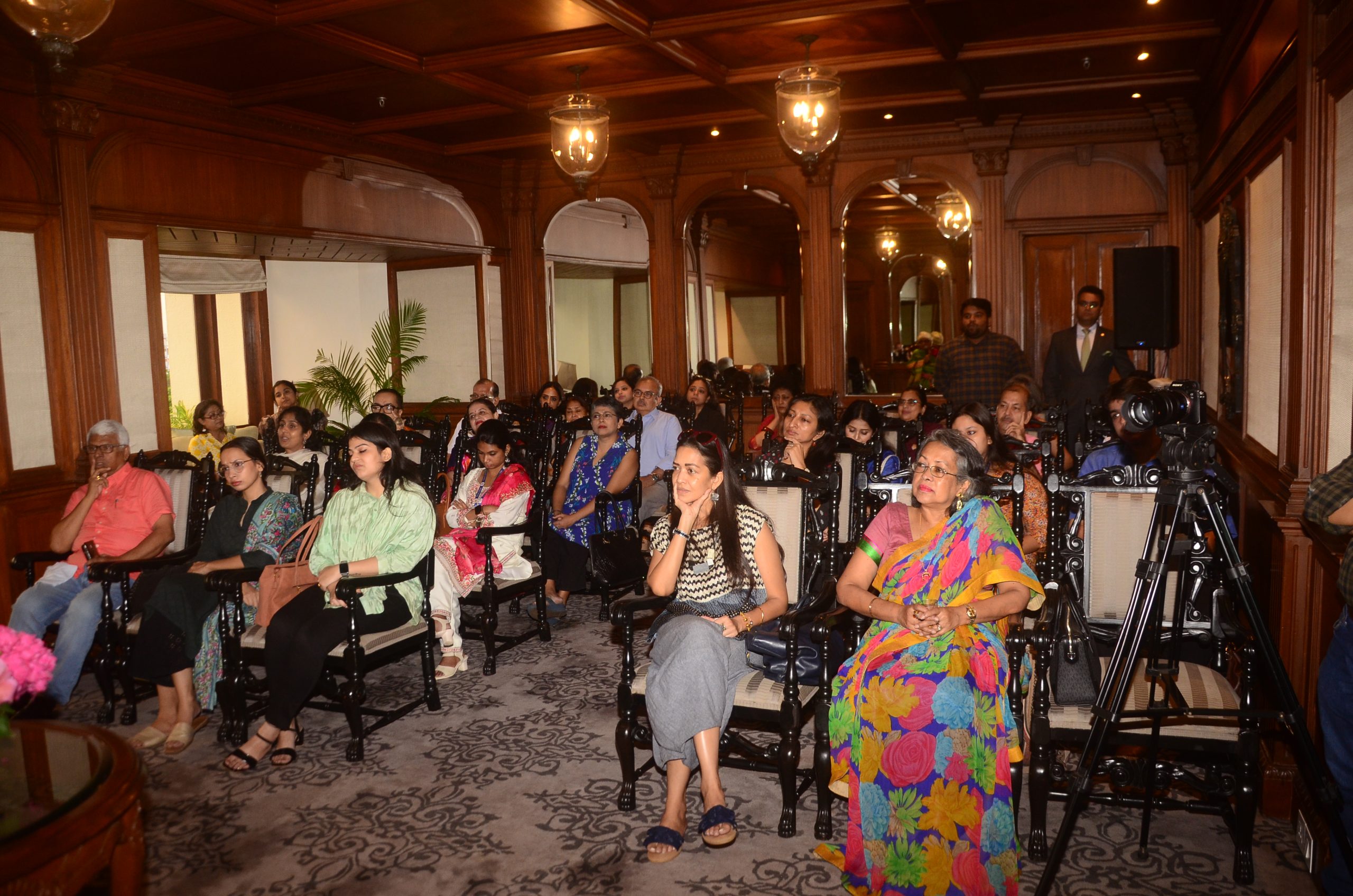In the world of journalism, Neerja Chowdhury is a renowned figure, celebrated for her insightful commentary and analytical prowess. An award-winning columnist, she has left an indelible mark on Indian journalism. Prabha Khaitan Foundation recently organised a session of An Author’s Afternoon with Chowdhury. The conversation was expertly guided by Vidya Gajapathi Raju Singh, Ehsaas Woman of Chennai, leading to a thought-provoking and enlightening discussion for the audience. Anindita Chatterjee, Executive Trustee of the Foundation, welcomed the gathering.
Plunging into Chowdhury’s latest literary work, How Prime Ministers Decide, Singh mentioned that this book was unlike any other before it. The book talked about six past prime ministers of India, marking the coming of age and progress of Indian democracy. Chowdhury read an excerpt from the book, and explained how it is often said that the prime minister’s decision casts “a rare light on how governments work in our multi-party fractious democracy”. Not only do they sit at the top of the pyramid of power, but they also navigate pressures and balance competing claims, grappling with the upsurge of groundlevel forces knocking at their doors. Much has been written about prime ministers and their policies, but how they make decisions and what comes with it – competing pressures, machinations and manipulations – are explored in Chowdhury’s book.
Chowdhury emphasised that her book goes beyond political analysis and focuses on the personal experiences and anecdotes of India’s prime ministers. She believes that understanding the human aspect of these leaders is essential for comprehending their decision-making processes. The discussion also touched upon the diverse leadership styles of different prime ministers, highlighting how their backgrounds, personalities and experiences shaped their governance.
“In my 50 years of journalism, I have not got rid of any of my thousands of pages of documents, articles, news reports, books, conversations, interviews – or any notes for that matter, where I had penned down every single interaction and conversation that I had with any political person that I met,” she said. “And I really wanted to write this book for Millennials. People my age can walk down memory lane, but I wrote this book for today’s generation.
The discussion also touched upon the diverse leadership styles of the six PMs she has covered in the book — Indira Gandhi, Rajiv Gandhi, Vishwanath Pratap Singh, P.V. Narasimha Rao, Atal Bihari Vajpayee and Manmohan Singh – highlighting how their backgrounds, personalities and experiences shaped their governance. Chowdhury talked about how differently the prime ministers handled significant challenges and crises during their tenures, offering a glimpse into their decisionmaking processes under pressure. “There have been six prime ministers from northern India, especially from Uttar Pradesh, two from southern India, and two from the West, but none from the East or the Northeast,” Chowdhury observed. “There have also been no Dalits or Muslims appointed as prime minister in India thus far. There are many fault lines and flaws in the nation’s institutions.”
The conversation then turned to India’s first woman PM. “When I started writing about Indira Gandhi, I could have written about the Emergency,” said Chowdhury. “But the most fascinating facet of her journey was when she went in for elections in 1977. She didn’t have to do it – the economy was doing well, she had a grip over the situation. So, why did she think of the elections?”
After Indira Gandhi’s assassination, Rajiv Gandhi made for a hesitant PM. But he was looked upon with great hope, as he “won Lok Sabha seats, set about solving the problems of the Assam Accord, Punjab Accord, and Mizoram Accord, lowered the voting age, set up technology missions, and introduced the anti-defection law,” said Chowdhury. “He was a futuristic prime minister.”
Talking about the comparisons made between Jawaharlal Nehru and Narendra Modi, Chowdhury pointed out how Karan Singh, a politician and the Maharaja of the princely state of Jammu & Kashmir, told her that, while Modi may not admit it, he “wants to be like Nehru and surpass Nehru.” But the differences between Nehru and Modi remain sharper than the similarities, observed the author. “Nehru believed in secularism, a scientific temper and minority rights. Modi’s project is that of a civilizational state for the establishment of a Hindu Rashtra.”
Chowdhury also highlighted how each PM possessed a unique decision-making style. “Nehru relied on advisers; Indira Gandhi had the ability to make autonomous decisions,” she said. “Manmohan Singh is often considered to be among the weakest PMs, with Sonia Gandhi virtually being the de facto PM at the time. But through the Indo-US nuclear deal, Singh showcased his strength of character.” Chowdhury also discussed Vajpayee’s knack for building consensus and Modi’s penchant for gauging public opinion.
The engaging session concluded with an interactive round with the audience, who appreciated the depth of research and the intriguing stories in the book. Farhan Khan of Taj Bengal gave the vote of thanks, and Esha Dutta, the Foundation’s Honorary Convenor of NorthEast Affairs, gave the author a beautiful dokra item.
Neerja Chowdhury
26th September 2023
Watch a glimpse of the conversation

